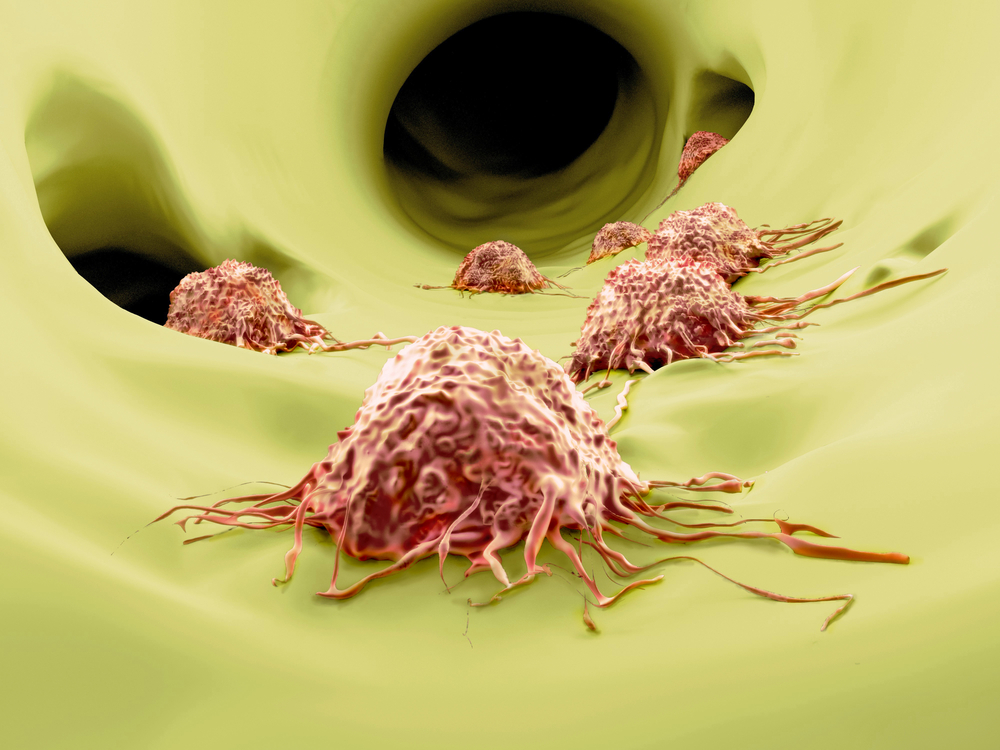This week, researchers from the Vall d’Hebron University (VHU) Hospital’s Vall d’Hebron Institute of Oncology (VHIO) in Barcelona, Spain, have released results from a study showing that a therapeutic agent called Sym004, a mixture of two anti-epidermal growth factor receptor (EGFR) antibodies, showed positive results in a sample of patients with metastatic colon cancer (CC). The study, entitled, “Safety and Activity of the First-in-Class Sym004 Anti-EGFR Antibody Mixture in Patients with Refractory Colorectal Cancer,” was published in the latest edition of Cancer Discovery, a journal of the American Association for Cancer Research.
Background Terminology:
- Metastatic cancer: a cancer that has spread from the place where it first started to another place in the body.
- EGFR: the epidermal growth factor receptor is a transmembrane cellular receptor that plays a role in tumor proliferation and progression.
- anti-EGFR therapies: these are therapeutic agents that slow down or stop cell growth and are most often used to treat metastatic cancers.
Currently, the only FDA approved anti-EGFR antibodies are cetuximab and panitumumab, both of which have shown to be a great treatment option for patients with certain types of CC. However, in many cases the cancerous tumors become resistant to this therapeutic agent, leaving patients with few treatment options. In an effort to circumvent this resistance, Sym004, which is a 1:1 mixture in the same infusion bag of two antibodies that bind to different regions of the extracellular domain of EGFR, was designed in hopes that it would provide better outcomes than cetuximab or panitumumab when treating CC patients.
About the Study:
In this study, a sample of 62 clinical patients diagnosed with both advanced (20 patients) and metastatic (42 patients) CC, underwent treatment with Sym004. Their treatment protocols for the 2 groups included:
- For patients with advanced CC a dose-escalation drug administration schedule was utilized with the dose ranging from 0.4 mg/kg to 12 mg/kg, given weekly.
- For patients with metastatic CC a dose-expansion drug administration schedule was utilized with doses of doses of 9 mg/kg or 12 mg/kg given weekly.
The primary study finding showed an overall disease control rate of 67%. Another important clinical finding was seen amongst patients in the metastatic CC group in which 13% had a partial tumor response, and 44% had some degree of tumor shrinkage during treatment.
In a University press release on the research findings, Dr. Josep Tabernero, MD, PhD, head of the medical oncology department at VHU Hospital, Director of the VHIO, and senior study author, stated, “This study represents one of the first examples of promising translation from preclinical findings to drug development and clinical activity against anti-EGFR antibody-resistant colorectal cancer. The significant antitumor activity of Sym004 in patients whose tumors have become resistant to anti-EGFR therapies suggests that some colorectal cancers that progress after treatment with anti-EGFR therapies cetuximab or panitumumab remain dependent on EGFR signaling.”


